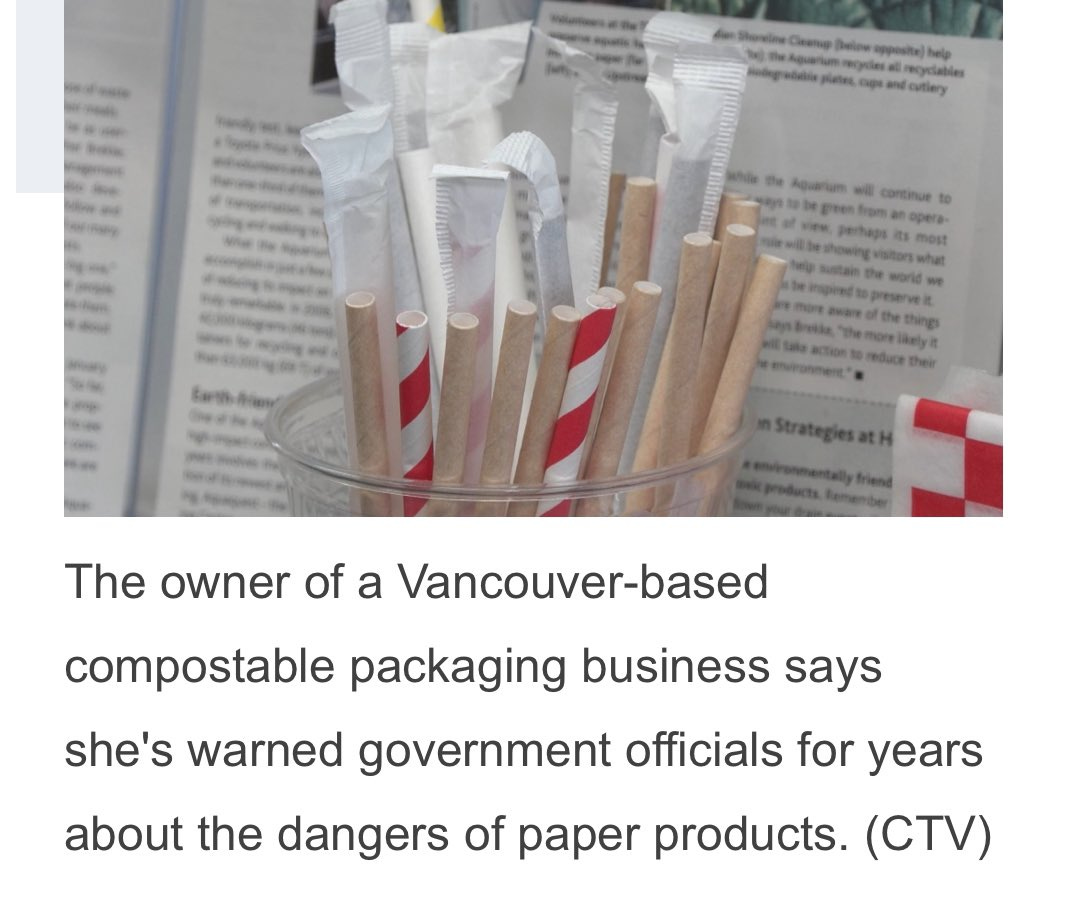Are "Eco-Friendly" Paper Straws and cups Really Better for the Environment?
More Greenwashing ....
In a world where we seems to be poisoned at every turn, who knew the fancy (mushy) paper straws and cups would also turn out to be very harmful for our planet, and bodies?
A recent study published in Food Additives and Contaminants suggests that so-called "eco-friendly" paper and bamboo drinking straws may not be as sustainable or safe as advertised. Belgian researchers have found that these plant-based alternatives often contain harmful, long-lasting synthetic chemicals known as poly- and perfluoroalkyl substances (PFAS).
PFAS in Plant-Based Straws
PFAS, sometimes called "forever chemicals" due to their persistence in the environment, are used in many consumer products to provide resistance to water, heat, and stains. These chemicals, however, have been linked to various health issues, such as thyroid disease, increased cholesterol, liver damage, and certain cancers.
Did we not fight to rid these chemicals from our products years ago!? I remember specifically buying IKEA foam mattresses for the kids when they were little as they were free from the PFAS. I also would not buy new pajamas for the kids as Canada had some rule they had to be dowsed in fire retardant.
In this large study, scientists from the University of Antwerp tested 39 different brands of straws made from five materials: paper, bamboo, plastic, glass, and stainless steel. The results showed that PFAS were present in 69% (27 out of 39) of the brands tested, with the highest levels found in paper straws (90% of brands tested) and bamboo straws (80%). In contrast, stainless steel straws were free of detectable PFAS.
These chemicals can accumulate in the human body over time, potentially contributing to long-term health risks. Researchers are uncertain whether the PFAS in straws result from intentional waterproofing treatments or contamination from soil and water used during manufacturing.
Additionally, the study noted that some PFAS found in the straws, such as perfluorooctanoic acid (PFOA), have been globally banned due to their toxic effects. Other detected substances, including trifluoroacetic acid (TFA) and trifluoromethanesulfonic acid (TFMS), are highly water-soluble and may leach into beverages…and your body (obviously)
Biodegradable?
Despite their reputation as a greener alternative, the presence of PFAS suggests that paper and bamboo straws are not necessarily biodegradable. Therefore; the belief that switching from plastic straws to plant-based alternatives would benefit the environment is a proven fallacy.
*Make sure to not throw them into your compost, as the chemicals could leak into your earth you are making for your organic garden*
Paper Cups Also Contain Toxic Chemicals
In addition to concerns about straws, researchers at the University of Gothenburg have highlighted the environmental and health risks associated with paper cups. A study published in Environmental Pollution found that disposable paper cups can leach toxic chemicals into the environment, particularly in aquatic ecosystems.
Paper cups are lined with a thin layer of plastic—often made from polylactide (PLA), a bioplastic derived from renewable resources like corn and sugarcane—to prevent leaks. While PLA is marketed as biodegradable, researchers found that it does not effectively break down in water and can release harmful microplastics. In laboratory tests, both paper and plastic cups negatively affected the growth of mosquito larvae, suggesting potential ecological consequences.
[ note: I always put these cups into my compost thinking they were wax lined - no more! Straight into the garbage]
Annd…. food packaging materials, in addition to paper cups introduce hazardous chemicals into human diets.
Shifting from plastic to paper food packaging might just be the biggest Greenwashing placed on us - besides some of the “renewable energy solutions”.
Dr. Thimo Groffen, the environmental scientist leading the research on straws, advises consumers to consider stainless steel straws or avoid straws altogether. Unlike paper and bamboo options, stainless steel versions do not contain PFAS, making them a safer and more environmentally friendly choice. Though plastic straws can contain per- and polyfluoroalkyl substances (PFAS), they have typically lower levels compared to plant-based alternatives like paper and bamboo straws. A study by the University of Antwerp found PFAS in various types of straws, including plastic ones, with the highest concentrations detected in plant-based materials.
Similarly, Professor Bethanie Carney Almroth from the University of Gothenburg suggests reducing reliance on disposable cups. Bringing reusable mugs for takeaway beverages or opting for ceramic cups when dining in can help minimize plastic-related health risks and environmental damage.
As more countries phase out single-use plastic products in favor of plant-based alternatives, these studies highlight the importance of ensuring that substitutes are genuinely safe and sustainable. Policymakers and manufacturers NEED to reconsider material choices and production processes to prevent environmental and health risks.
Sources:
Boisacq, P., De Keuster, M., Prinsen, E., Jeong, Y., Bervoets, L., Eens, M., Covaci, A., Willems, T., & Groffen, T. (2023). Assessment of poly- and perfluoroalkyl substances (PFAS) in commercially available drinking straws using targeted and suspect screening approaches. Food Additives & Contaminants: Part A. https://doi.org/10.1080/19440049.2023.2240908
Carney Almroth, B., Carle, A., Blanchard, M., Molinari, F., & Bour, A. (2023). Single-use take-away cups of paper are as toxic to aquatic midge larvae as plastic cups. Environmental Pollution. https://doi.org/10.1016/j.envpol.2023.121836
Source:
Boisacq, P., De Keuster, M., Prinsen, E., Jeong, Y., Bervoets, L., Eens, M., Covaci, A., Willems, T., & Groffen, T. (2023). Assessment of poly- and perfluoroalkyl substances (PFAS) in commercially available drinking straws using targeted and suspect screening approaches. Food Additives & Contaminants: Part A. https://doi.org/10.1080/19440049.2023.2240908
A. Richards - Team COAP





